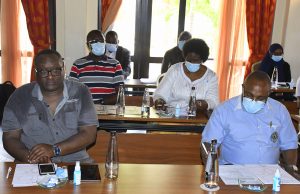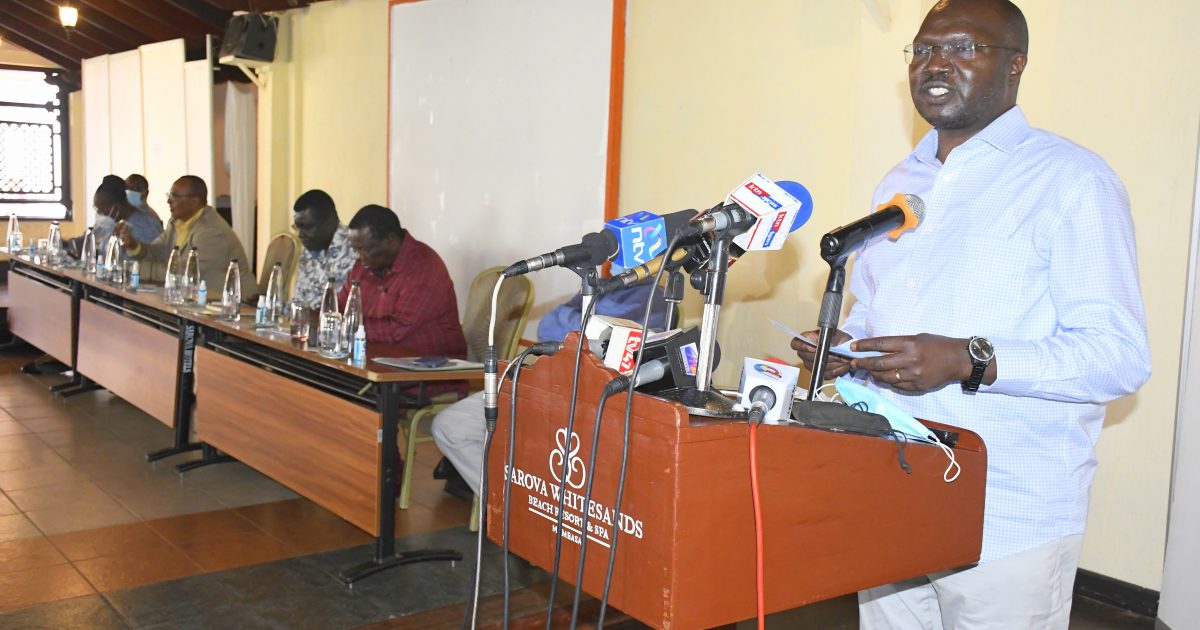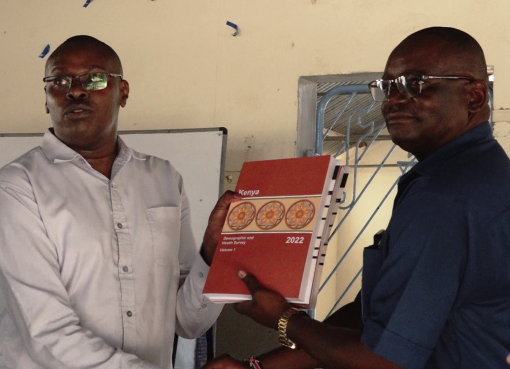Labour and Social Protection Cabinet Secretary Simon Chelugui, has urged employers and workers to promote industrial harmony, so as to help grow the economy of the country post Covid-19.
Chelugui said that it is important to create industrial peace in the country, to allow for productivity and development of the nation’s economy, using the most important factor of production, which is labor.

He has discouraged picketing or demonstrations in the country, saying it deteriorates the economy further.
“When we engage in downing tools, labour affects our country in a major way that money cannot measure,” said Chelugui.
He advised on the convection of all the social partners, government, workers and employers to discuss the issue of industrial harmony and agree on how to deal on disputes when they come.
“The government is ready to facilitate the engagement between employers and workers but discourages demonstrating as a first action when issues arise. At least out of the 88 unions, we can have the top 5 leadership. We will be able to agree so that we can be able to enjoy industrial peace and talk of productivity instead of talking about challenges and complains of workers,” added the CS.
The CS also promised to persuade employers to give workers a chance and allow engagement at the shop level, before they rise up to national level.
“We don’t want it to reach a place where teachers and doctors are laying down their tools. If we engage and give that engagement an opportunity, that way we will save lives in our medical facilities, our children will go to school because teachers will be busy teaching and in that way we will be able to rise up from covid-19 and build our nation again,” he said.
In the performance of the board, the CS told the board that it is expected to have active committees that are to work regularly and inform the board on the emerging trends and challenges in the labor sector.
He urged them to take a deep dive and analyse the way they have been conducting their business and come up with better productive ways of executing their mandate.
“You need to have new methods of promoting harmonious industrial labor relations, promoting social dialogues and fair labor practices, promotion of fundamental principles and rights at work,” he said.
Chelugui promised to look into the issue of funding, saying although it is affected by the legal personality that the board lacks; he vowed to commit to the members and the social partners that as a ministry they will be working on amendment of the act to give the board a life of its own.
His sentiments were echoed by the Secretary General of the Central Organisation of Trade Unions-Kenya, Francis Atwoli, who said that the National Labor Board (NLB) will work effectively once it becomes an independent body.
“We are missing our target, we need to re-examine the areas of concerns in the National Labor Board, but only if we become independent,” said Atwoli.
By Chari Suche





